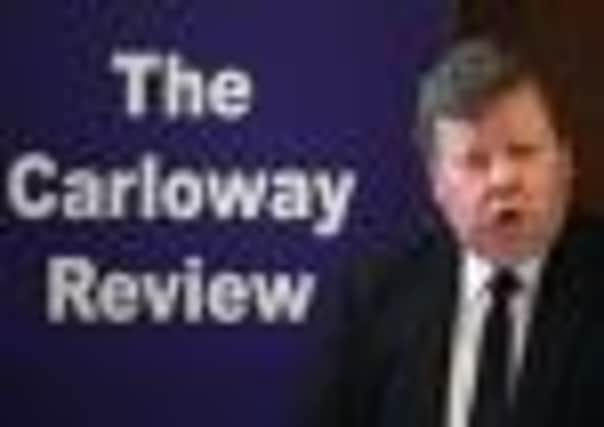Radical overhaul of Scots Law could spell end for corroboration


At present two separate pieces of corroborating evidence are needed for prosecutors to bring a criminal case in Scotland.
Senior judge Lord Carloway has recommended scrapping that rule along with a series of other far-reaching changes.
Advertisement
Hide AdAdvertisement
Hide AdThey include a new, more straightforward “arrest on suspicion of” status for all suspects taken into custody, which would give them immediate access to a solicitor, greater safeguards put in place for questioning under-18s and vulnerable adults, and speeding up and simplifying the appeals process.
The review followed controversial Supreme Court judgements, which brought huge upheaval to Scots law, including when suspects are given access to a solicitor.
The Scottish Government has said it broadly backs Lord Carloway’s reasoning, but will hold a public consultation until 5 October, before deciding whether to try and pass his recommendations into law.
Justice Secretary Kenny MacAskill said: “As much as the UK Supreme Court’s Cadder decision caused upheaval - to which we reacted quickly - it also provided the opportunity to re-evaluate our criminal justice system in more detail. The review carried out last year by Lord Carloway is not only weighty and authoritative, but far-reaching and radical.
“Lord Carloway’s report provides a clear and coherent package of reforms to modernise the Scottish Criminal Justice System which I believe will resonate well into the future in the same way as the Thomson Committee’s work of the 1970s still resonates today.
“Some of his proposals, such as the removal of the requirement for corroboration, are monumental and will overhaul many years of legal practice.”
He added: “On corroboration, the consultation paper agrees that the requirement should be abolished.
“It reflects that the rationale for the rule stems from another age, that its usage has become confused and that it can bar prosecutions that would in any other legal system seem entirely appropriate.
“The focus of our consultation is on deciding how to best achieve abolition and what, if any, additional measures require to be taken as a consequence.”